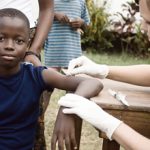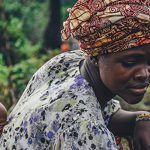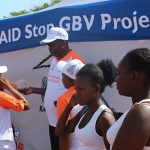
About usProgrammes
Kwatu Brand
Home > Programmes
Nature of intervention
ZCCP is working within government policies and frameworks under the auspices of the National AIDS Council (NAC), different government ministries such as Ministry of Health, Ministry of Education, Ministry of Community Development Mother and Child Health, Ministry of Gender and Child Development and Ministry of Chiefs and Traditional Affairs, besides, collaborations with other stakeholders. At NAC, ZCCP is sitting on the HIV Prevention Committee. ZCCP seeks to impact on priority health, HIV & AIDS, Gender-based violence (GBV), ending child marriages campaign and development interventions that encompass prevention, care and support and mitigating the impact of HIV and AIDS, GBV as well as general Health interventions. The activities include behaviour change communication around key HIV and GBV drivers in Zambia, , whereas, care and support interventions includes but not limited to OVC support and health education and creating general HIV resilience at the household level through the establishment of Income generating activities. Other interventions include maternal and child health and malaria. ZCCP interventions are anchored on research to ensure evidence based programming. ZCCP has been implementing these interventions using the multi- media approach elaborated in details hereunder.
Research
Formative target audience and key informant research forms the cornerstone of the implementation of ZCCP’s programmes.Through research, ZCCP is able to adequately capture the voices
of the targeting audience in defining the health and development problems they face and in formulating ways in which communication can help in addressing these problems. In order to assist with this research function, ZCCP has trained research assistants in qualitative data collection techniques. This pool of researchers has representation from all the seven major languages and their corresponding cultures in Zambia.
audience in defining the health and development problems they face and in formulating ways in which communication can help in addressing these problems. In order to assist with this research function, ZCCP has trained research assistants in qualitative data collection techniques. This pool of researchers has representation from all the seven major languages and their corresponding cultures in Zambia.
Our research activities therefore aim to ensure that the information obtained from the target audience and other stakeholders is reliable. ZCCP stresses objective data collection without leading the research participants. Based on our experience in qualitative formative assessment, we continuously incorporate into our training and briefing of data collectors, the gaps that have been identified over the course of our research experience in order to improve the quality of our data
Other Interventions
Other interventions include maternal and child health and malaria. ZCCP interventions are anchored on research to ensure evidence based programming. ZCCP has been implementing these interventions using the multi- media approach elaborated in details hereunder.
ZCCP utilizes print media to communicate with its target audience. The print format includes brochures, posters and magazines. Magazine is the most widely used format and to date ZCCP has produced 7 print titles with a combined circulation of over 5,190,000 copies countrywide. Each of these publications can be accessed under the publications section of the website. A key issue to note about the magazines in that they are written in simple English that can be accessed by anyone with basic reading skills. An additional feature of the print is that difficult words are translated into the seven major local languages to aid comprehensive understanding of the text. The thematic areas that have been addressed in the print include adolescent sexual and reproductive health, maternal, new-born and child health, HIV, male circumcision, gender and multiple concurrent partners and alcohol abuse. Two of ZCCP’s publications, Choose Life and Family Care for Mother and Child have been reprinted by two different partners in a quest to meet demand for these magazines.
Radio is the most widely accessible form of media in Zambia both in terms of reach and language content. ZCCP takes advantage of this wide reach and produces radio dramas which are aired on the national broadcaster and on other commercial and community radio stations across the country. The radio dramas are produced in English and selected local languages for each series. Collectively, ZCCP has produced radio dramas in the following local languages, Nyanja, Bemba, Lozi, Kaonde, Lunda and Tonga. Radio has addressed the following thematic areas: maternal, new-born and child health, HIV, gender and multiple concurrent partners and alcohol abuse, Male Circumcision, TB, Adolescent Health and malaria.
ZCCP has produced a number of television products that have been aired on the national broadcaster and on other TV stations. Initially, ZCCP adapted some Soul City TV drama series and added on a community based component that gave community member on opportunity to share their experiences with regard to a particular issue depicted in the drama. This community based component was filmed on location in various parts of the country. ZCCP then moved onto the development of short TV drama films. Trailers of these films are available for viewing under the resources section. ZCCP was also one of the three partners that development the miniseries Club Risky Business.
ZCCP is coordinating and supporting post GBV survivors to access post GBV clinical care at OSCs situated at MoH health facilities.The OSC is a safe space that provides safety to the Gender-based violence survivor by ensuring that the perpetrator does no further harm to the survivor. World Health Organization standard operating procedures are implemented at the OSC where GBV survivors are treated of any injuries before assessing them for HIV test especially victims of sexual gender based violence. Sexually Transmitted Infections are also screened and treated. The survivors are also offered first-line support services before being referred to other services such as paralegal and police services.
As a way of increasing community engagement around the issues addressed through mass media, ZCCP conducts community mobilization activities in Zambia by engaging them to identify community priorities, resources and solutions available within their communities. ZCCP uses the P-Process, social ecological model and SASA! methodologies to engage communities.

ZCCP intends to continue implementing programmes through multimedia and community mobilization. ZCCP’s focus now and in the near future is on multiple concurrent partnerships and sexual and reproductive health rights and mobile populations. Others are campaigns on maternal Health, malaria and environmental conservation. Implementation of the multimedia activities will incorporate the use of different formats for example talks shows on SRHR targeted at youth, radio and TV Public Spots Address and brochures.
Over the years ZCCP has received funding from the following donors:-
- Soul City Institute of Health and Development Communication
- European Union
- DFID
- Sweden
- Norad
- SADC
- Royal Netherlands Agency
- USAID
- PEPFAR
- Global Fund
UNFPA through Health Communication Partnership
ZCCP works with Ministry of Chiefs and Traditional Affairs (MCTA), Ministry of Gender and Child Development (MGCD), Ministry of Community Development Mother and Child Health (MCDMCH), Ministry of Health (MoH), Ministry of Education (MoE) and Ministry of Home Affairs (MHA).





